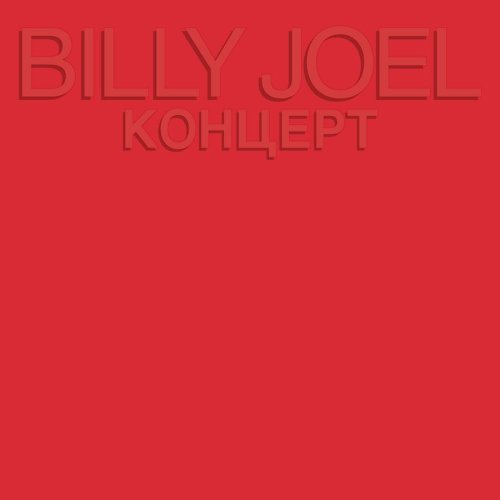
Kohuept (1987)

1. Odeya
2. Prelude/The Angry Young Man
3. Honesty
4. Goodnight Saigon
5. Stiletto
6. Big Man on Mulberry Street
7. Baby Grand
8. An Innocent Man
9. Allentown
10.A Matter of Trust
11.Only the Good Die Young
12.Sometimes a Fantasy
13.Uptown Girl
14.Big Shot
15.Back in the U.S.S.R.
16.The Times They Are A-Changin'
Some albums are best understood not by what they achieve, but by what they attempt. In 1987, as Cold War frost was just beginning to thaw under the hesitant warmth of glasnost, Billy Joel did what few Western artists had dared: he went East. The resulting performances—recorded during his historic tour of the Soviet Union—would become КОНЦЕРТ, a live album ambitious in gesture but curiously inert in execution.
To be clear: the intent was noble. Joel was, after all, never just a piano man—he was a craftsman of sentiment and populism, a blue-collar philosopher with a keen sense of moment. His Soviet tour was positioned as cultural diplomacy with a backbeat. And while the documentary cameras rolled and news outlets gushed, the recordings themselves tell a flatter story.
It’s not the band. Joel’s performances are characteristically professional, his phrasing precise, his vocals in control. Nor is the setlist at fault—songs like Goodnight Saigon and Allentown had the kind of thematic weight suited to an audience raised on state restriction. The trouble lies in the one essential ingredient of any live recording: the crowd. Or, more precisely, the absence of one in any audible sense.
Audience engagement, that crucial call-and-response electricity, is almost entirely missing for much of the album. The Soviet listeners, understandably unfamiliar with the tropes of Western concert etiquette, respond with polite silence rather than the expected roar. On record, this translates as dead air—long stretches where Joel and band seem to be playing into a void. You find yourself listening not to a live album but to a soundcheck.
Joel attempts to fill the gap with gestures—some generous, some contrived. The album opens not with his own voice, but with Odoya, an a cappella piece by a Russian vocal ensemble. He performs Dylan’s The Times They Are A-Changin’ (a choice so on-the-nose it almost stumbles into parody), and of course, he does Back in the U.S.S.R., as if every Western rocker in Russia is handed that mandate with their visa.
Yet despite these flourishes, the effect is more of a travelogue than a rock show. The album feels curated, not lived. What should have been raw, immediate, and spontaneous ends up sounding carefully arranged, even sterile. This impression is reinforced by the absence of key moments—like Joel’s mid-show outburst during Sometimes a Fantasy, where he upended a keyboard in frustration over intrusive camera lights. It’s missing from the album, and its omission is telling. The messier truth of the tour has been quietly excised.
Still, there are glimmers. Joel remains, even at half charge, a superb live vocalist. The set builds modest momentum toward the end, as the audience begins to stir into something resembling recognition. But it’s all too little, too late.
History will remember the tour for what it symbolized: an artist using his platform to extend a hand across the Iron Curtain. But the album itself is a reminder that music—especially live music—doesn’t survive on symbolism alone. Without the fire of shared energy, even the brightest spotlight dims.
Back To Main Page
Go To Next Review